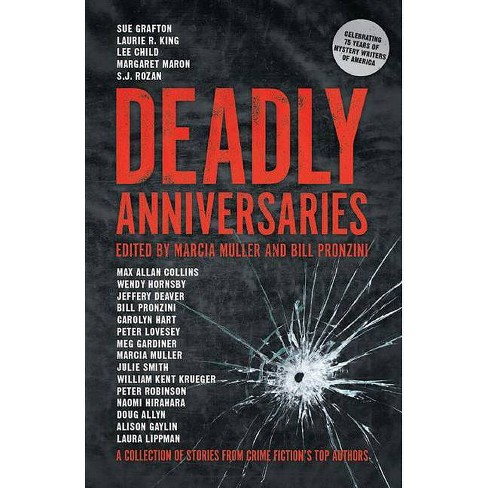In the waning days of my stint at Data Corp, a bank-owned subsidiary in Virginia’s
Shenandoah Valley, security auditors visited the company. These stern-faced men and women
differed from bank and financial auditors. They studied physical facilities, detectors,
alarms, and personnel. They reminded employees that banking is serious business.
Thus it came to pass, they paid particular attention to me, rogue hired-gun, expert in
multiple languages and knowledgeable in the intricate arts of operating systems and the
mysterious software void. I had delved deep into the labyrinth of the sacred OS and lo, I
not only survived the puzzles of the Minotaur, but my reputation grew, a mark of my
shadowy powers and the peril I represented.
Sandman, Matt… how different could we be? Birds of a feather, cut from the same
cloth, tarred with the same brush. The auditors were determined to unmask… Danger
Man.
Caught between the security professionals and Data Corp’s need to keep me around, the
company assigned their top programmer to watch me, to make certain no Harry Potter magical
enchantment passed my fingertips to the detriment of the Eastern Seaboard banking
community. My transition from legendary hero to potentially a bad, bad boy had the
spectacular effect of enhancing my dark reputation amongst the fair sex of the
Shenandoah Valley. That’s a story improper for a scholarly work such as this.
“It’s nothing personal,” said the vice president.
“It seems personal,” I said. After the fiascos with Sandman and then Matt, I felt peeved,
petulant and perhaps a little petty, those p-offed adjectives. Later, I would become
better known for guarding my tongue, but I childishly couldn’t resist showing off. “The
auditors are looking in the wrong place. They shouldn’t be suspicious of talent, but of
simple vulnerabilities. I bet I can have money out of the bank and on your desk in 24
hours.”
“I don’t believe in gambling.”
“Neither do I. I prefer certainties. Wanna wager?”
“You’re serious?” He sighed. “We have to tell them.” He started to beep the chief auditor
but stopped himself. Cogs visibly turned in his head. On the off chance I was right, why
reveal weaknesses to the auditors? “How?” he asked.
“The obvious everyone overlooks.”
“It’s obvious you’re presumptuous.” He didn’t say it unkindly. The vice president leaned
forward on the edge of his chair, hands braced on his desk. I could see his mind churning,
thinking over the computer rooms, an entire floor of programmers’ offices, the banking
terminals scattered around the counties. “It doesn’t mean you can’t be right.”
Neither of us believed in gambling, but for different reasons. The VP was a pious man. He
said, “I don’t bet, but I will pay you five bucks if you can pull it off.”
I said, “Fair enough. One thing though– keep things as they are– no extra security just
because of this, okay?”
He muttered under his breath. If he hadn’t been a religious man, it would probably have
sounded something like, “arrogant sodding bastard.”
A Draft In The House
A few hours remained before my self-imposed night shift, so I visited the banking center
off the lobby. I bought a money order to pay my phone bill, watching every move the teller
made. Afterwards, I went back to my rooms to sleep a few hours.
The vice president fibbed about not stacking the deck against me. That evening for the
first time, a guard searched my flight case as I entered the computer facility. The VP
also ordered the data vault closed, a concrete and steel room with a blast-proof door. If
I needed a data cartridge, I’d have to ask Nagle, the watchdog programmer they’d hung
around my neck, to fetch it.
Like a personal albatross, he watched every move, my every keystroke. As I rolled my
chair between consoles, he followed, straining to see if I attempted anything unusual. I
simply did my job, asking him to give me breathing space as I studied program code.
We ordered Chinese food. Nagle consumed his with coffee rather than tea, striving to stay
alert. I asked what his instructions were and he said he’d been directed to keep a special
eye on me. “They think you’re up to something.”
 |
| green-bar, fanfold paper |
“I am. I’ve got to debug this by morning.”
From time to time I pulled ‘green-bar’ stacks of paper off the big high-speed printers. I
had a well-known propensity for leafing through paper listings, giving my eyes a rest from
luminescent computer screens. Nagle had wearied from working all day, but occasional
requests for tapes or discs kept him awake.
Taking great precautions but overlooking a small, seemingly insignificant but crucial
details is only human. Long ago, I’d remarked upon one of these details to the computer
room operators who’d forgotten by the next morning. They had stuffed a box of Christmas
Club checks on a panel of the control unit next to the printer, handy if they had to make
a quick check run. Nothing sinister about printers, right?
I asked Nagle to fetch a data cartridge from the vault as I gathered a listing from the
printer, I simply tore off a sheet of three checks and slipped it among the pages of my
printout.
An hour after midnight, I dragged manuals and listings into what tellers called the ‘back
room’, and spread them out on work tables. To enter the computer room, operators and
officials had to pass through a couple of electronically locked anterooms into the data
center.
It was also possible to pass from the lobby into the customer area of the banking center
where lexan barriers protected the teller area. Behind the glass, trusted employees could
pass through the back room to the computer room itself– and vice versa. The computer room
contained a photo lab at the back, which the security auditors didn’t like since it gave
non-computer people access to the servers.
 |
| MICR check imprinter |
The back room was of special interest to me because it contained a small machine I
needed, a MICR imprinter, a shoebox-size device with a simple keyboard used to encode the
special magnetic ink numbers along the bottom of a check.
During the day, the back room was used by clerks to spread out reports and by tellers to
imprint deposit slips and checks as needed. During the evening, operations bundled and
unbundled stacks of checks and imprinted the occasional ‘carrier’, a glassine envelope for
damaged checks. By night, I used the same room when I needed an expanded work area. Nagle
stopped paying attention to me when I left the main room because the tellers’ back room
contained no computers.
I’d never used the imprinter before, but I’d watched the operators. My plan was to key in
the account number the bank used to pay me and that’s when I discovered the bank had made
my task easier– and an easier crime for anyone else to carry out. When I filched the
checks, my famed 007 powers of observation had been running low because I hadn’t inspected
them closely. Rather than print individual account numbers on Christmas Club checks, the
bank used one general account thoughtfully pre-printed on the checks along with the
routing and serial numbers. The check numbers linked a given check to a customer. I didn’t
need the MICR imprinter after all.
I discovered something else. Next to the MICR machine were open boxes of bank drafts and
money orders accessible not only to tellers, but any person who strolled in from the
computer room. They were sequentially numbered and I had no idea if anyone took note of
the number in the mornings. I took samples out of the middle.
Back in the computer room, Nagle was nodding off. He headed for the coffee machine.
Green-bar program listings from large computers were printed on continuous ‘tractor-feed’
fan-fold paper stock that were packed and stacked in a zig-zag fashion. The printer prints
one accordion-pleated side only– the back is almost never used and, when fastened in a
binder, the back is never seen. In other words, a page was actually two sheets
back-to-back attached at the leading edge and bound at the back. It formed a pocket,
perfect for nefarious smuggling.
Cue Mission Impossible theme.
Uncapping a glue stick, I dabbed the drafts and the Christmas Club checks and tucked them
within the multi-fold pages. James Bond had nothing on me.
Binder in hand, I told Nagle, “I’m going upstairs for an hour. I’ll be back.” He
gratefully closed his eyes in the operations office. The security guard, mystified by the
runes of technology, only cursorily glanced at the listings.
I needed time and privacy to duplicate the same type of printing on the draft and the
Christmas Club check. From the tractor feed paper and proximity to the printer, it was
easy to deduce the Christmas Club checks were printed on the high speed impact printer, a
device the size of a roll-top desk capable of churning out hundreds of pages in seconds. I
needed to duplicate its distinctive type face, so on one page of the program I had been
working in, I’d printed a sample: my name, ‘FIVE AND ***’, and $5.00. All I needed
was a way to emulate the printer’s font.
Beating the Draft
The bank draft presented a different problem. The name on the draft I purchased in the
afternoon was printed using a monospace sans-serif font, and it wasn’t similar to any I
could find on the PCs commonly used in the office. I was surprised– They had almost
everything.
I expanded my search. Nothing. I didn’t have access to Illustrator or Photoshop. I
couldn’t log onto the Adobe site for a matching font, and it didn’t seem sensible to pay them more than I was going to collect.
But wait; I was overthinking. The vice president expected me to engineer a hi-tech crime,
but I’d gone lo-tech. Where had I seen an IBM Selectric? Chase’s secretary’s desk. The
office kept a couple of typewriter balls in a junk drawer. I picked the most computerish
style and dropped the font ball into the typewriter.
I tweaked the positioning and ran a test copy on plain paper. When I held it up to the
light in front of the blank draft, it looked close. I adjusted the margins until I was
satisfied and printed one of the drafts made out to me with several zeros in the amount. I
repeated the process with one of the Christmas Club checks made out for five dollars.
Leaving the draft in my desk, I set the Christmas Club checks aside. No sense taking them
back into the computer center.
I wrapped up early for which Nagle was grateful. The guard glanced in my briefcase.
Seeing no wads of bills or bullion, he let us go.
After sleeping until noon, I drove through a branch drive-thru and cashed the $5 Christmas Club
check. Back at the office, the security guards perked up. They gave my briefcase a
thorough going over. Finding nothing incriminating, they let me pass.
When I casually strolled toward the vice president’s office, he glanced up and waved me
in. “Any luck? You’ve just a couple of hours left.”
“Oh, yes. Here’s a bank draft made out to me, all legitimate looking. I didn’t cash it so
I wouldn’t screw up the bank’s accounting.”
His lips thinned when he saw the number of zeroes. Pinching it between two fingers, he
looked it over carefully with narrowed eyes. He set it aside as if I had handed him a used
tissue. “You said you could get money out which I took to be cash.”
I pulled $5 from my pocket and put it on his desk.
“You’re conceding?” he asked.
“No.”
“What’s special about this?”
I put the receipt on top of it. “It’s from the bank’s Christmas Club account.”
Never before had I witnessed a ‘basilisk stare’. For a moment, I worried I’d crossed the
line. However, he prided himself being a fair and rational man, and he went from personal
offence to realizing I could help plug a hole or two the auditors hadn’t yet spotted.
“How much?”
“How much what?”
He sighed. “How much is this going to cost me?”
“Lunch.” I reconsidered, thinking about his tightwad reputation. “A good lunch.”
In fairness, he made it a very good lunch.
Loose Ends
Management instructed their tellers to lock away the blank drafts at night. The Christmas
Club checks they moved into the vault as they should have from the beginning.
Nagle told me he’d been yelled at, but the shouting was only half-hearted. The vice
president had merely instructed him to ensure their in-house Robin Hood didn’t attempt a Mission
Impossible hi-tech transfer. Instead I had come in under their radar with an
old-school lo-tech crime, which made it worse. They found it sobering, but they took
comfort the security auditors hadn’t detected the gaffe and the price of one lunch was
right.















































